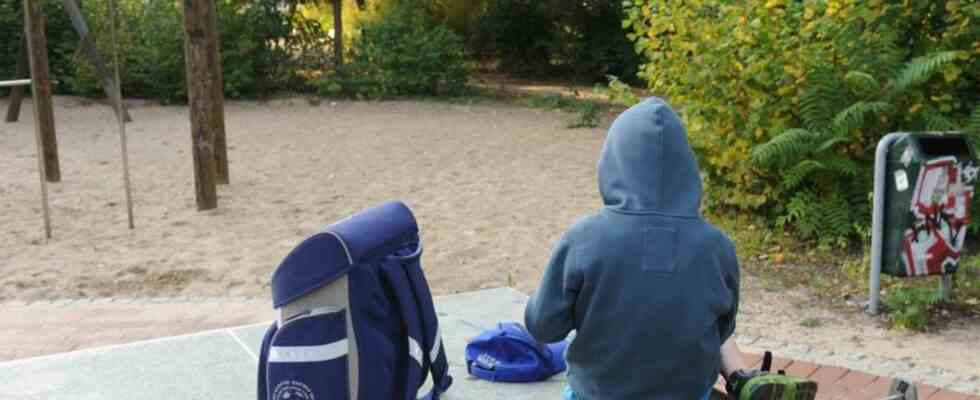Health
Children continue to be burdened after the pandemic – the government wants to help
In the future, the federal government wants to provide children and young people with better support in coping with the psychosocial stress caused by the corona pandemic (symbolic image). photo
© Jens Kalaene/dpa-Zentralbild/dpa
Since the corona pandemic, more children have been suffering from eating disorders and psychological stress – this is shown by a report by an expert group. The federal government wants to take action. Schools should play a central role in this.
Schools closed, no football games in the club and missed birthday parties: In the corona pandemic, children and young people had to do without in many places and the consequences of this continue to this day. According to a report by an expert group, 73 percent are still mentally ill.
The federal government therefore wants to provide better support for children and young people in dealing with the psychosocial stress caused by the corona pandemic with a catalog of measures in the future. The Federal Cabinet has now approved the corresponding report and recommendations for action.
Poor families are particularly affected
“As is so often the case, children from poorer families are hit particularly hard: children of single parents, from families with a migration background, those who live in cramped living conditions or have parents with mental problems,” said Federal Family Minister Lisa Paus (Greens).
According to the ministry, the approved report provides for projects in five fields of action – such as federal investment programs to expand day care centers and better medical care for children and young people. The planned measures also include aid amounting to 56 million euros for families with children under the age of three.
In addition, children should be able to access psychosocial counseling from the youth welfare office without their parents being informed. “Girls in particular unfortunately suffer from eating disorders, anxiety disorders and depression more often than before,” said Paus.
Adolescent medicine: “Make offers of help on site”
Schools should also be the place of action. “You have to offer help on site. The public health service can also be active in schools,” said Reinhard Berner, director of the clinic and polyclinic for child and adolescent medicine at the Dresden University Hospital. The medic is part of the report’s team of experts. “Health and health literacy must be strengthened in schools.” This is not just hygiene, such as washing your hands properly, but also dental health, mental health or vaccinations.
According to the decision, from the 2023/24 school year, specialists in schools are to provide support with questions about mental health and acute mental crises as part of a model program by the Ministry for Family Affairs.
Lauterbach: Caring for the children must have priority
Federal Health Minister Karl Lauterbach said that after children had suffered particularly from the pandemic and the control measures, they were owed that their care was now a priority. The SPD politician called on parents to take preventive U-examinations in any case. If children are conspicuous, seem depressed or withdrawn, parents should always have them examined by psychologists or doctors if in doubt. It is important to treat early disorders so that children have good prognosis.
The Paritätische Wohlfahrtsverband welcomes the measures and calls for further help with housing. “We really have to do some more work and see how youth welfare can interfere massively in housing policy,” said managing director Ulrich Schneider. “We learned in the Corona crisis that we have a large proportion of homes where children have no opportunity for self-development.” If a crisis then comes, such as the lockdown, then it really is over.
This is also confirmed by school social worker Karolin Kroggel. “The living environment of the children in my school is often cramped and exhausting,” said Kroggel. You recently asked who had their own room – one of 80 children reported.

